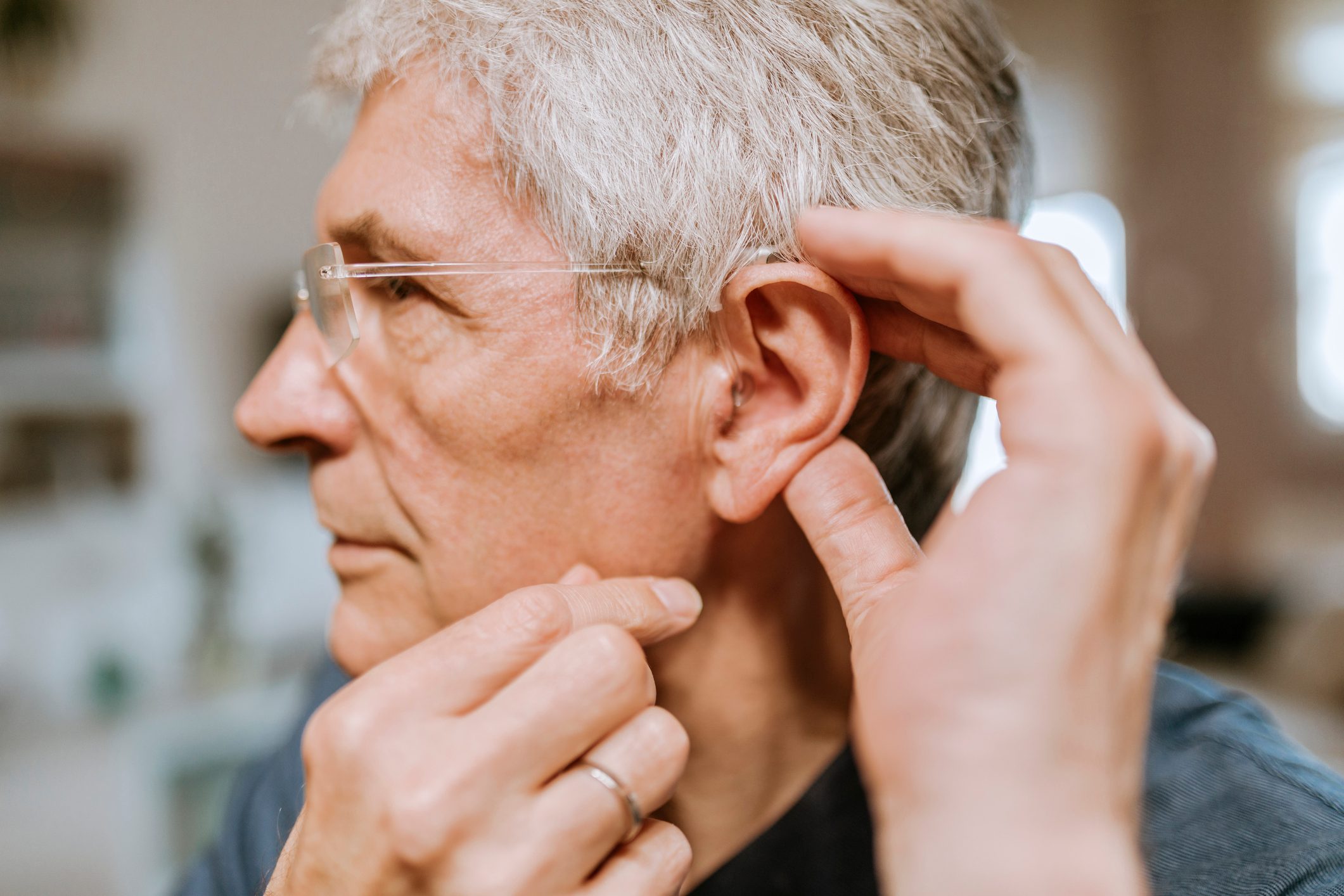New research says addressing this very common symptom of aging could also help manage memory loss.

New Study Says 32% of People with Dementia Experience This Symptom, Too

The Baby Boomer generation continues to mature, coinciding with more research identifying new risk factors for dementia. U.S. health experts estimate annual new dementia cases will double by the year 2060. Currently, more than 6 million Americans have dementia.
But what if better dementia prevention could be as simple as treating hearing loss in some older patients? Published April 2025 in JAMA Otolaryngology-Head & Neck Surgery, a peer-vetted medical journal, a new study explored this idea based on what previous research has shown is an established association between the two conditions.
The research team represented a large number of prestigious U.S. medical institutions including Columbia, Vanderbilt, NYU and Johns Hopkins. The researchers reviewed data from 2,946 participants with an average age of 74.9 years of age. The data came from participants involved in the Atherosclerosis Risk in Communities (ARIC) Neurocognitive Study, with up to eight years of follow-up. The ARIC study has been used for other recent research into dementia risk factors.
There were 1,947 individuals in the study with diagnosed hearing loss (or hearing loss measurable via a hearing test) while 1,097 had self-reported hearing loss.
The results suggested that up to 32% of dementia “could be attributable to audiometric hearing loss.” (“Audiometric” referred to hearing loss that had been diagnosed using measurement tools, not self-reported by participants.) Some experts have asserted that the isolation of not being able to fully participate in social situations with age can lessen the cognitive stimulation an individual needs to keep the brain active and engaged.
In particular, the fractions appeared to be most significant among participants who were at least 75 years, female, and Caucasian, said the study. This aligns with the general data showing that women are affected by some types of dementia, like Alzheimer’s, at a higher rate than men.
Ultimately, the study suggested treating hearing loss could delay dementia onset for a “large number” of older adults. “Public health interventions targeting clinically significant audiometric hearing loss might have broad benefits for dementia prevention,” suggested the authors. One worthwhile takeaway might be not to let possible hearing loss go unchecked. Especially with over-the-counter hearing aids now on the market, the price point is getting friendlier and solutions are more readily within reach.
For daily wellness updates, subscribe to The Healthy by Reader’s Digest newsletter and follow The Healthy on Facebook and Instagram. Keep reading:




















